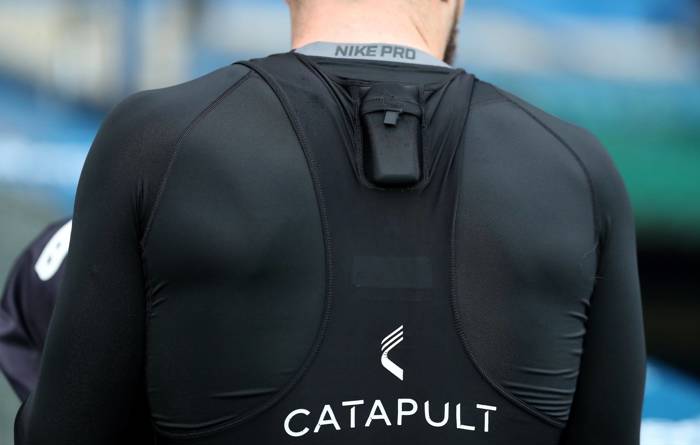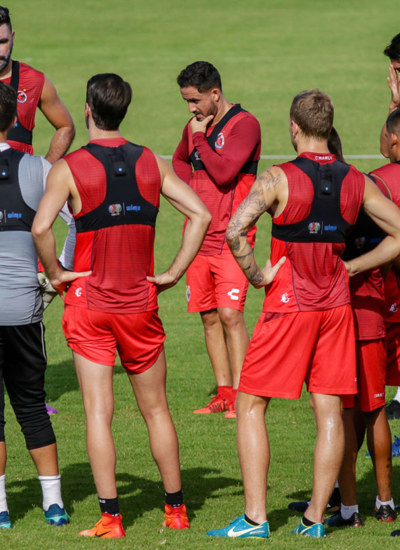
Our guests’ opinions do not necessarily reflect the position of FIFPRO
Professional football is a global spectator sport and its players have always been in the public eye. But today, new digital technologies, from the devices that can track every move and pass to the tools of artificial intelligence that can predict a player’s behaviour, have exposed athletes to ever-greater scrutiny.
In a world where new platforms can share their data with anyone, it is not surprising that players feel excited and concerned at the same time. This is what FIFPRO’s Player Data Survey is telling us. It helps us to understand how players see the benefits and the risks. The survey sends a clear message: players need reliable information, effective rules and strong governance.
New technology, new rules
If many players are protected by international laws such as the European Union’s General Data Protection Regulation, they rarely know and understand them. Worse still, the absence of such laws in some regions means that the playing field is uneven: some footballers are protected but many are not.
Last week, FIFPRO launched the Charter of Player Data Rights with a view to implementing global industry standards that protect the privacy of professional footballers and allow them to benefit from personal rights to manage and access information about their performance and health.
In relation to their personal data, the Charter of Player Data Rights makes clear that all professional footballers should have:
• The Right To Be Informed
• The Right To Access
• The Right To Revoke
• The Right To Restrict Processing
• The Right To Data Portability
• The Right To Rectification
• The Right To Complain
• The Right To Erasure
Charter of Player Data Rights launched for professional footballers

Such a charter becomes only more urgent as new technologies appear at breath-taking speed. Players have understood that data can strengthen their performance; they accept it as an unavoidable consequence of the growth of monitoring technology. FIFPRO’s survey shows that players are very interested in how their performance data can highlight passes, duels or distance covered.
80 percent of respondents, regardless of gender and age, want to compare their performance from one match to the next. But most players also feel it is important for them to control access to their individual data. While most players would like to benchmark their performance with that of similarly-situated players in other teams, 50 percent of respondents (somewhat paradoxically) do not want to share their data with opponents.
Even as they recognise the growing importance of performance data in modern football, many players still do not know how to access their data or who can use it and for what purposes. Few players believe that the football industry provides a clear, adequate and consistent framework governing how player data is collected and used.
This may explain why 38 percent have only limited trust in the data’s ability to accurately represent their performance. The lack of information and confidence is particularly widespread among players who are 32 years and older.
Player Data: Managing Technology and Innovation
The Charter of Player Data Rights provides a response to the opportunities and challenges caused by new technologies, and is guided by leading legislation on data protection and privacy rights.

Technical and legal solutions
The complexity of personal data requires that we consider technical and legal solutions together. In professional football, this means responding to the:
- Lack of information about who can access performance data and for what purpose
- Limited trust in the accuracy of the data
- Limited information about the extended use of data beyond its initial purpose
- Perceived lack of control over data access and dissemination
How the players use technology matters too. Those who are most interested in analysing their data mainly consult it on their smartphones as soon as it becomes available. This invites football bodies to centralise performance data in a common set of apps and present it in a consistent manner, allowing players, clubs and third parties, including commercial partners and the media, to choose how they access and use the data. Such an approach would help to reassure players and build their confidence.
The apps could focus on national leagues or international tournaments, encouraging the relevant football bodies and competition organisers to work closely with tech companies.
Technology is never good or bad in itself. Everything depends on how we use it and why. The performance data of professional footballers is no different.
Players can now improve every part of their game, thanks to the new digital tools that measure their strength, health and performance across every blade of grass – an unprecedented level of scrutiny that demands clear rules and proper enforcement. It is a big test for football’s governing bodies, and one they must not fail.

About
Emmanuel Ronco
Emmanuel Ronco is a partner in the IP-IT & data privacy group of global law firm Eversheds Sutherland, where he acts a Global Co-Head of the Intellectual Property practice. Emmanuel represents international groups and leading companies on IP and data privacy matters, with a focus on transactions involving technology transfers and the commercialisation or monetisation of intangible assets and personal data, as well as on compliance and risk management relating to cybersecurity and data protection.


